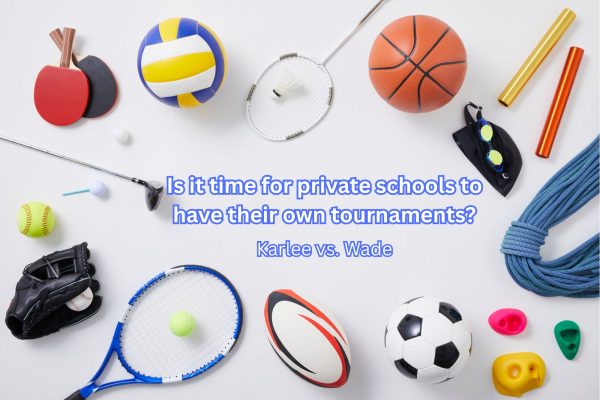Adding in Time for Student Meditation Would Boost Achievement, Decrease Stress
As you sit in class and attempt to focus on your teacher’s lesson, you can’t. Instead, your mind is in a million different places.
Next period, you have a test worth 60 percent of your grade. Tomorrow, you have two tests and a two-hour practice tonight.
Because you are focused on accomplishing all of the tasks ahead of you, it is impossible to focus on the current task.
As preparation for college and adult life is beginning at earlier ages, students are overwhelmed. This is why students need time during their school day to refocus and de-stress.
Meditation time in a school environment is essential to the success, academic performance, and overall well-being of students.
While some people argue that meditation has no place in school and that it is a waste of time, no one can argue that school can be an extremely stressful environment.
Meditation time for a short period during the day would improve the mental health of students and create a healthier school setting.
In major cities such as Los Angeles, Chicago, New York, and Washington D.C., especially in low-income sections, there has been a growing trend in implementing meditation time in school schedules.
Administrators of these schools say that many of their students are dealing with an immense amount of responsibility for children their age, such as working two jobs after school to help support their family.
Even for students who come from higher-income homes, there is still a large amount of pressure to do well in school and be
accepted into a good college.
It is estimated that students of schools that make time for meditation have a 48 percent lower depression and anxiety rate than schools that do not have meditation.
If students can have a more clear mind throughout the day, they can become the well-rounded people they need to be in order to be happy and successful in life.
Meditation can also lead to better behavior from students, which is not only good for their own well-being, but also beneficial to teachers who interact with students on a daily basis.
In Visitacion Valley Middle School in San Francisco, “Quiet Time” was introduced in 2007 due to rising crime rates in the area.
Schools gave students two periods of 15 minutes a day where students were able to sit in silence and relax, hoping it would help students react more efficiently in difficult life situations, rather than turning to crime.
Studies conducted on students and adults found that meditation was two to three times more effective in preventing drug and alcohol abuse than traditional drug prevention programs.
In addition, meditation can also be helpful in reducing absenteeism.
As meditation helps to create better behavior from students, teachers are able to conduct a higher level of learning and have a more healthy relationship with their students. In return, their level of stress is also reduced.
Perhaps the most important benefit of implementing meditation time in schools is increased academic performance in students.
Michael Mrazek, a psychology graduate student at the University of California decided to test this theory by randomly assigning 48 students to a mindfulness class to see if their focus was affected.
By the end of the week, the test scores in students rose from an average C to an A. Meditation gave students the time they needed to clear their minds and focus on what was really important.
As a result, they were more present in their academic tasks and retained more of the information that was
given to them in daily lessons.
So, as you’re sitting in class feeling overwhelmed by all of the things you have to get done, consider how beneficial it would be to have a few moments to breathe deeply and relax.
Students in current society are expected to mature years before they enter actual adulthood.
As early as middle school, kids begin college prep and in high school, it feels as if every class and grade will play a role in the future.
Not to mention the added social pressures of adolescence and the internal struggle that kids face as they determine who they are.
Giving children the skills they need to remain calm and rational in stressful situations is crucial to their survival in today’s world.

Olivia Montgomery is a Senior and second-year Smoke Signals member. Her favorite animal is a polar bear, her favorite movie is Almost Famous, and she is involved with Y-Club.







